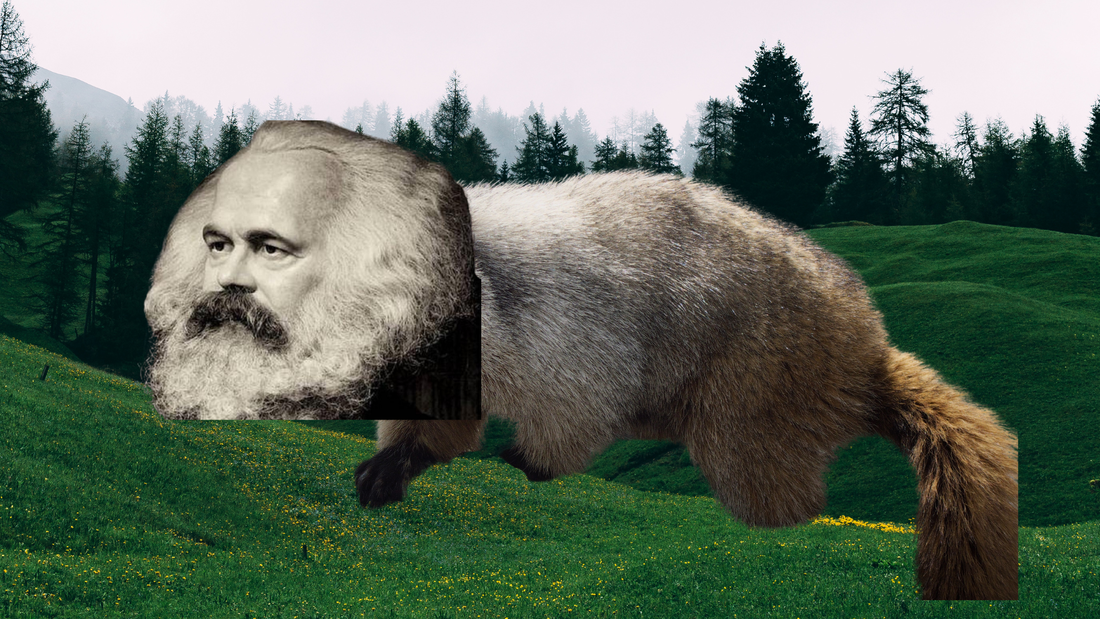|
How often do we hear that socialism sounds like a good idea but it doesn't work in practice because of human nature. This is an old refrain. People are by nature selfish and so competition is the natural outcome with the most talented and aggressive people reaching the top and the mediocre masses down on the bottom. But suppose it is really the opposite. Suppose those who engage in friendly cooperation really are closer to what nature intends. In a cooperative society maybe even the victims of aggressive actions still have a better chance to thrive than they would in a completely competitive environment. Maybe the Ayn Rand world is not the world for us and socialism is more natural after all. An article in Science Daily (12-8-2010) may provide a clue to the answer to these speculations ("Social Relationships in Animals Have a Genetic Basis, New Research Reveals"). Scientists at UCLA have been studying marmots living in the Rocky Mountains of Colorado. Marmots are rodents who are a genus (Marmota) of the squirrel family (Sciuridae). Some marmots have a propensity, so we are told, to chuck wood and are known as woodchucks, however they don’t really chuck (throw) wood. Others can predict (very doubtful) the weather (groundhogs) according to some. The marmots I am linking to possible socialist ideas are the yellow-bellied marmots (M. flaviventris) studied by the scientists. The name refers to fur and not to their lack of valor. The scientists found "that having many friendly interactions gave marmots fitness benefits--these marmots reproduced more," said Amanda Lea, one of the researchers and lead author of the paper. "Over a lifetime [about 15 yrs], a marmot that is very social will have more offspring than a less social one." Hmmmm. I wonder how much this applies to humans. This is one way of putting the "social" into socialism. But the scientists also found out that some marmots are the victims of aggression from their fellow marmots. Those who do not respond in kind, that is those inclined to turn the other cheek pouch, also have a better survival rate. So it seems that "a marmot that is getting picked on frequently" also will have more offspring. It is the family unit as such that is really important. Tolerating aggression as well as strengthening friendly cooperation keeps marmot society functioning. "Those relationships are important for social stability and reproductive success. I believe these ideas are generalizable well beyond marmots," said the study's co-author Daniel T. Blumstein. What is important is that these behaviors have a genetic basis and are passed on through the generations. If such behavior is common to mammals as such then humans also have these inborn tendencies for cooperation and tolerance. These genetic traits are, I think, much more in accord with the ideals of socialism than the ruthless free market world of Ayn Rand and other capitalist apologists. Scientific socialism is, therefore, the correct way to go about constructing a better world than trying to do so based on capitalism. AuthorThomas Riggins is a retired philosophy teacher (NYU, The New School of Social Research, among others) who received a PhD from the CUNY Graduate Center (1983). He has been active in the civil rights and peace movements since the 1960s when he was chairman of the Young People's Socialist League at Florida State University and also worked for CORE in voter registration in north Florida (Leon County). He has written for many online publications such as People's World and Political Affairs where he was an associate editor. He also served on the board of the Bertrand Russell Society and was president of the Corliss Lamont chapter in New York City of the American Humanist Association. Archives June 2022
0 Comments
Leave a Reply. |
Details
Archives
July 2024
Categories
All
|

 RSS Feed
RSS Feed